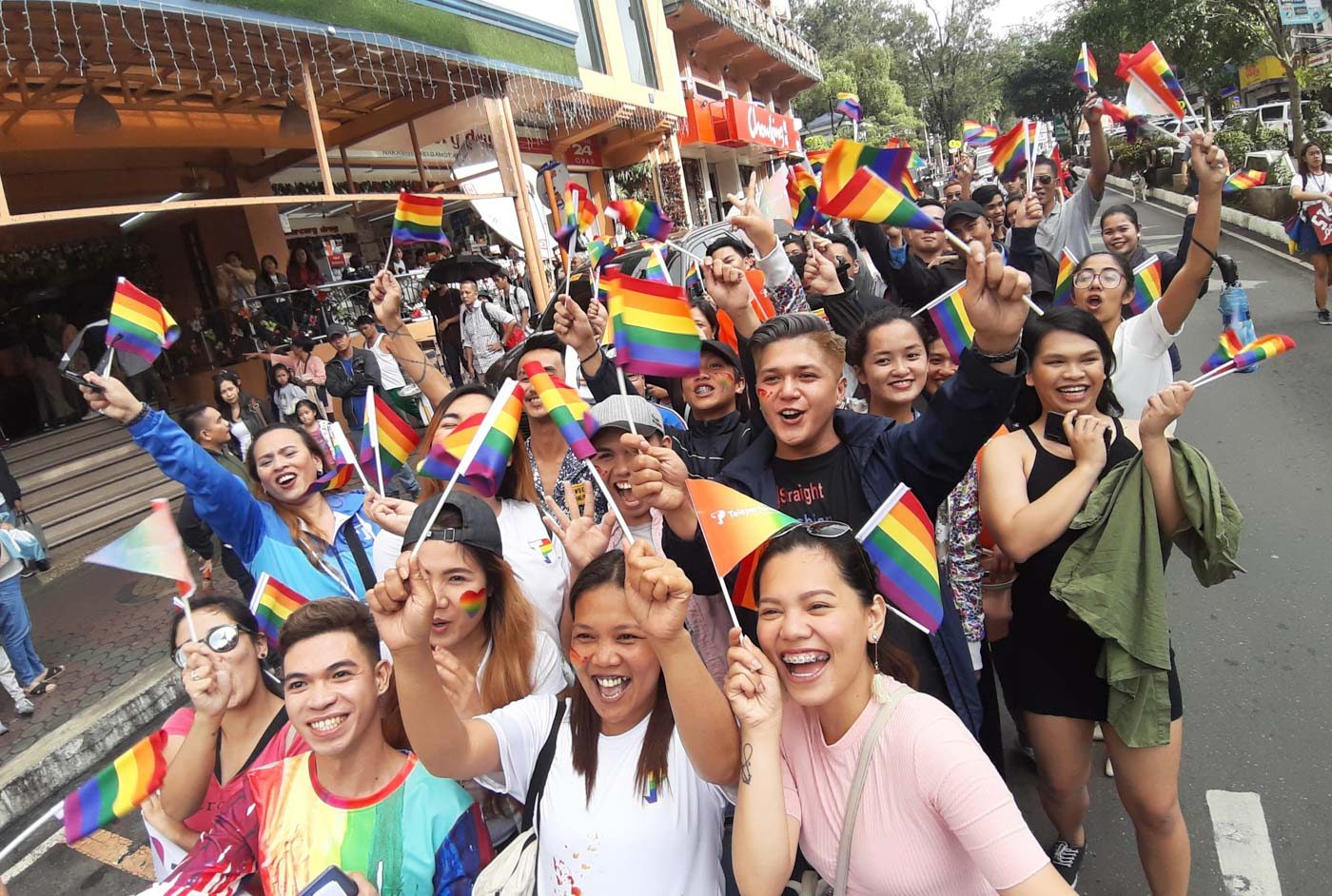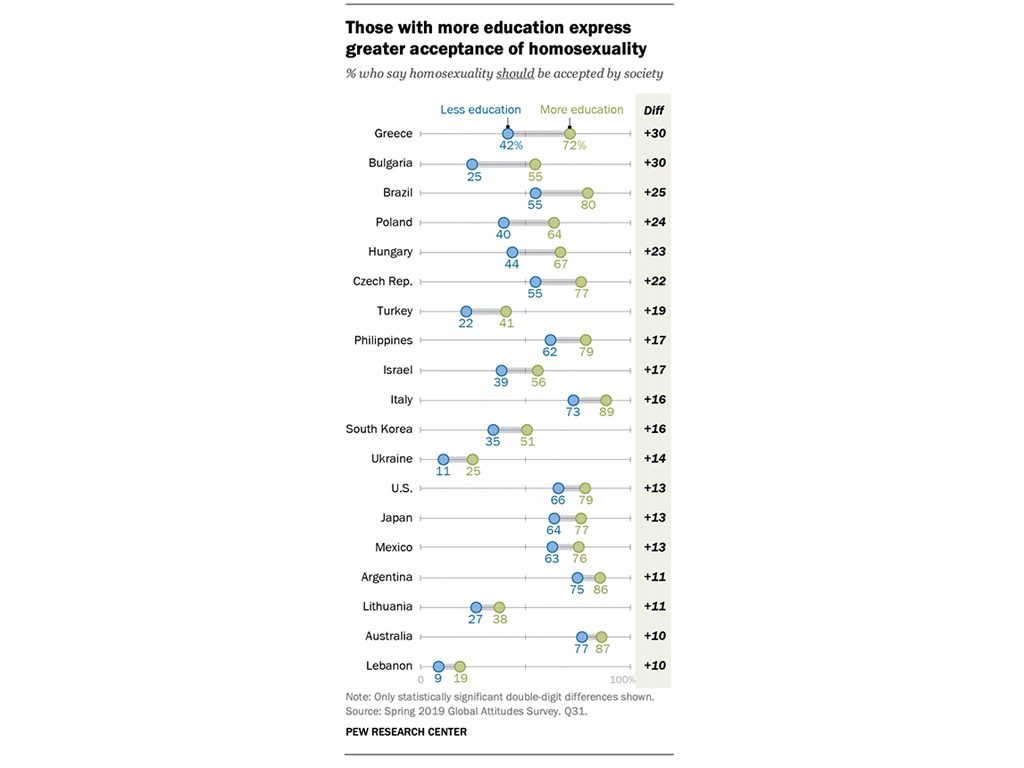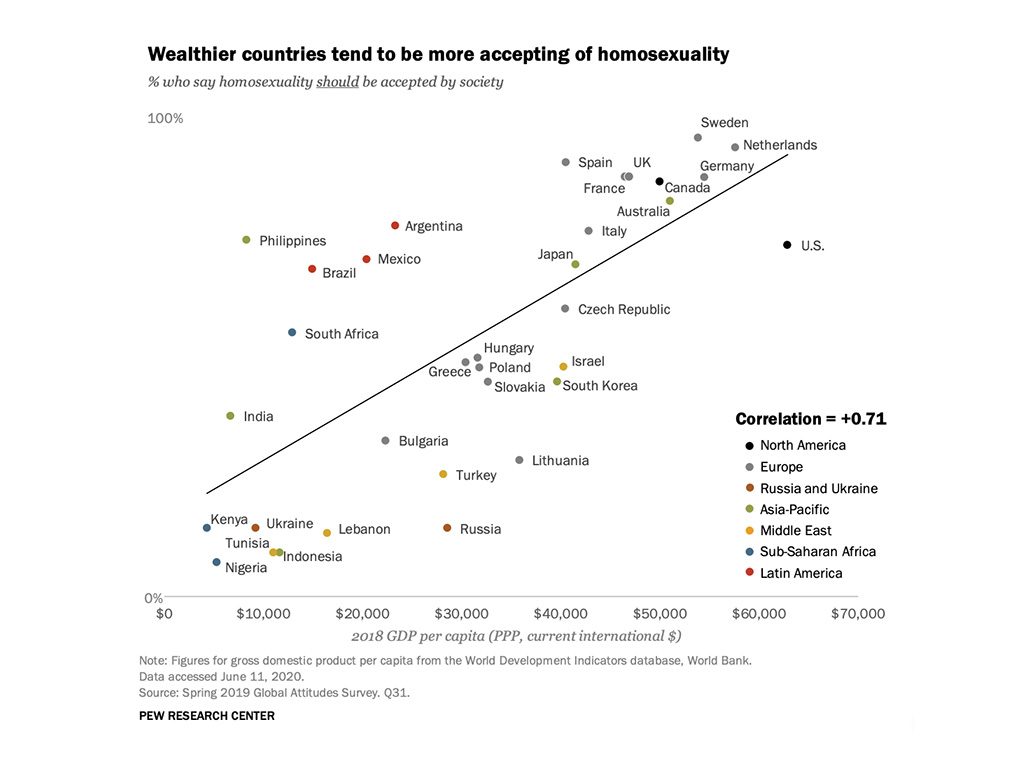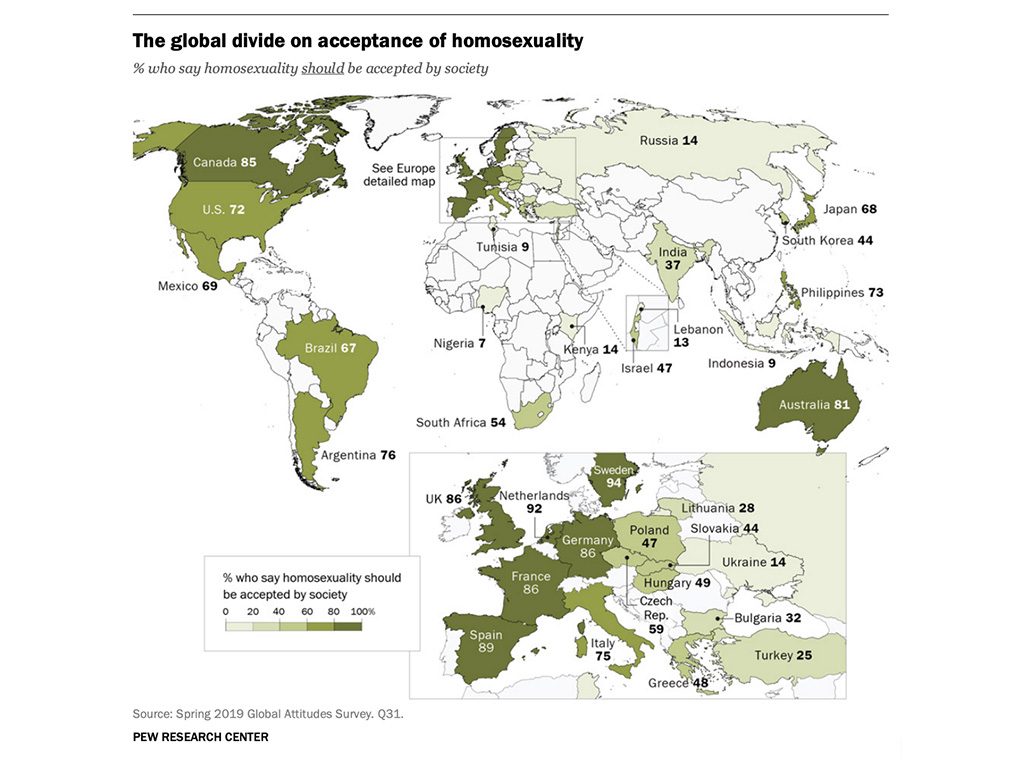SUMMARY
This is AI generated summarization, which may have errors. For context, always refer to the full article.

MANILA, Philippines – A new Pew Research report revealed that around 73% of Filipinos think that homosexuality should be accepted by society.
The survey, conducted in 2019, looked at how 38,000 people across 34 countries perceived homosexuality. The full question wording was: “Which one of these comes closer to your opinion? ‘Homosexuality should be accepted by society,’ or ‘Homosexuality should not be accepted by society.'”
When the same survey was conducted in 2013, the Philippines had the same acceptance rate at 73%. It is the only participant country that did not change its perception from 2013 to 2019. (READ: TIMELINE: SOGIE equality in the Philippines)
While the acceptance rates in the Philippines were the same in 2013 and 2019, more people in 2019 abstained from answering the question at 3%. People who said they don’t accept homosexuality was pegged at 24%.
In 2013, only 1% abstained and 26% said they do not accept homosexuality. This means that there were less who said they were against homosexuality in 2019.
The 2013 and 2019 acceptance rates are higher than when the same survey was conducted in 2002. Back then, 64% of Filipinos accepted homosexuality.
Filipinos with higher education expressed greater acceptance. However, even those with less education yielded high acceptance rates.

Highest in Asian participants
Among the Asian participants in the survey (India, Indonesia, Japan, Philippines, and South Korea), the Philippines had the highest number of respondents who said they were accepting.
Japan came close at 68%. Other Asian neighbors, meanwhile, showed low rates. Muslim-majority Indonesia only yielded 9% acceptance of homosexuality.
The study found that generally, wealthier countries tend to be more accepting. Among the countries that had high rates were Sweden, the Netherlands, Germany, and the United Kingdom.
While the Philippines had a relatively low gross domestic product per capita, it still came close to the acceptance rates of the richer countries.

World situation
The Pew Research Center found that there is a global divide on homosexuality in general, but that there has been increasing acceptance in many countries over the past two decades.

“Despite major changes in laws and norms surrounding the issue of same-sex marriage and the rights of LGBT people around the world, public opinion on the acceptance of homosexuality in society remains sharply divided by country, region, and economic development,” the study read.
Those in Western Europe and the Americas were found to be more accepting than those in Eastern Europe, Russia, Ukraine, the Middle East, and sub-Saharan Africa.
Meanwhile, the Asia-Pacific region is split. Pew Research attributes this to economic development, and religious and political attitudes.
In a span of 17 years, Pew found that many of the countries surveyed showed a double-digit increase in acceptance of homosexuality, such as in the cases of South Africa and South Korea.
More women than men, as well as younger generations, were found to be more accepting.
You can read the full report here. – Rappler.com
Add a comment
How does this make you feel?
There are no comments yet. Add your comment to start the conversation.